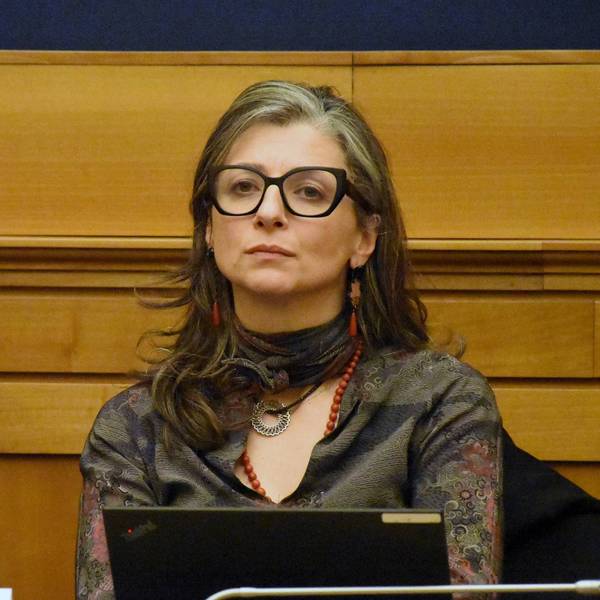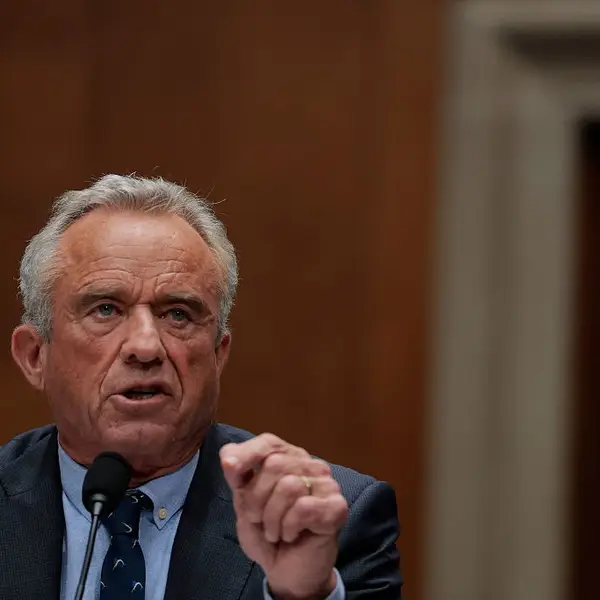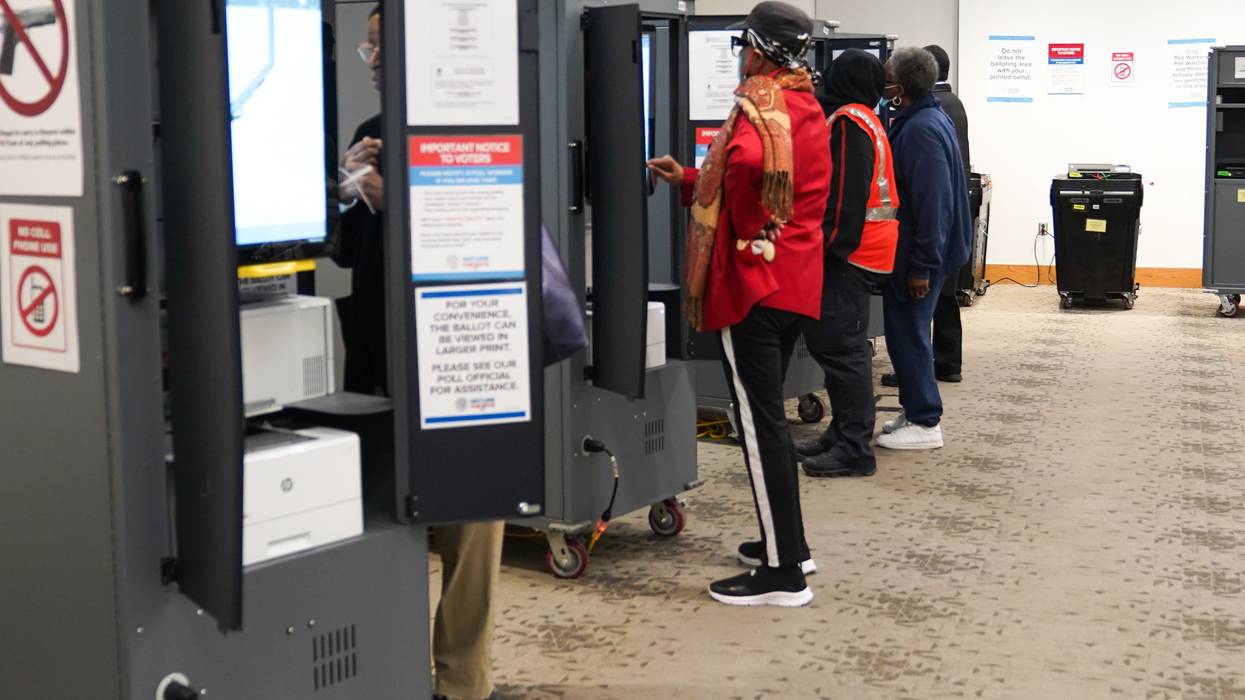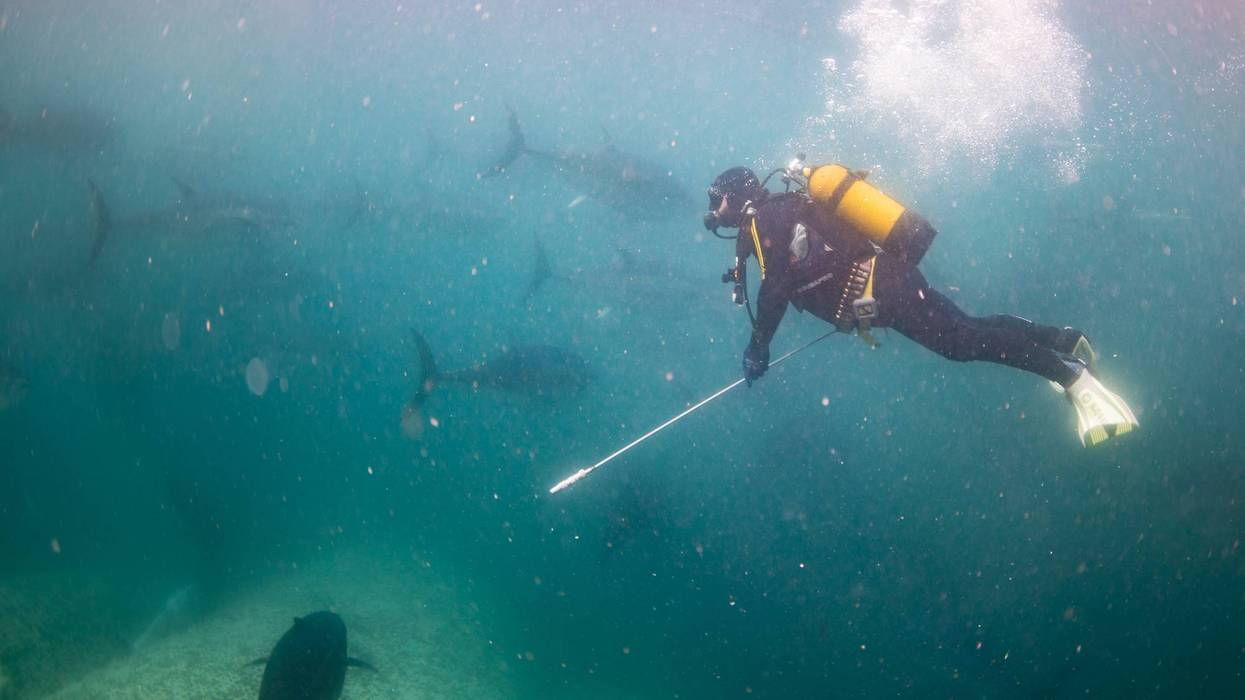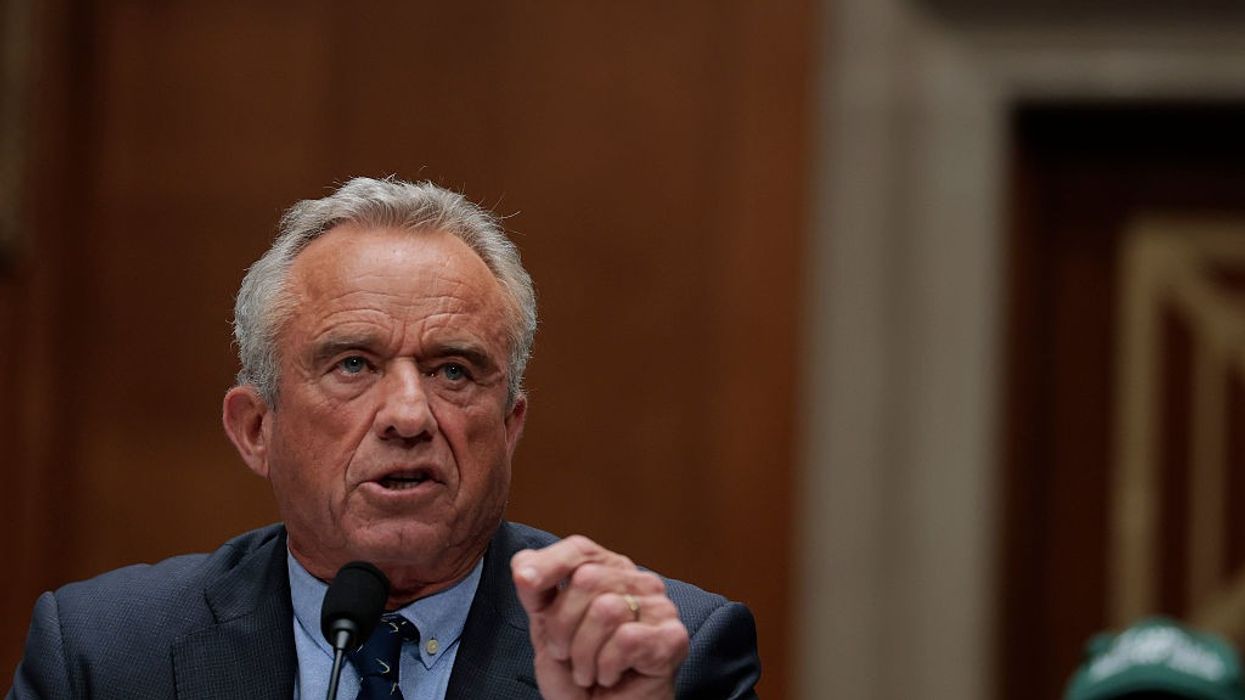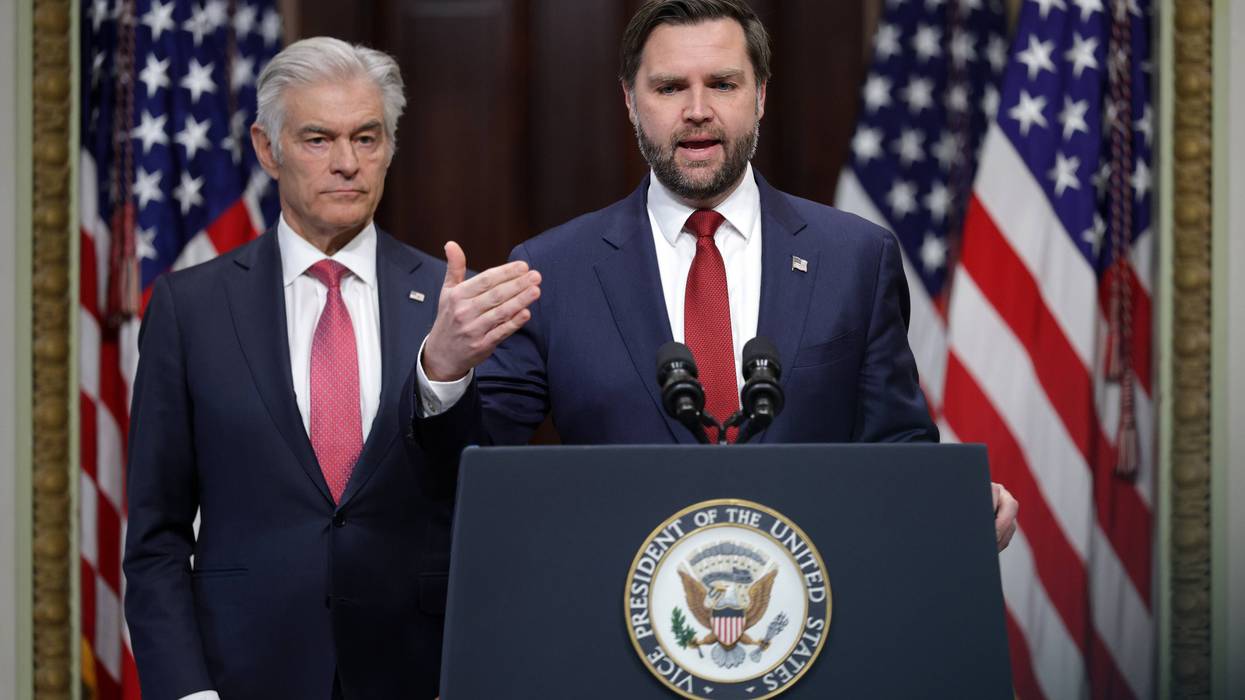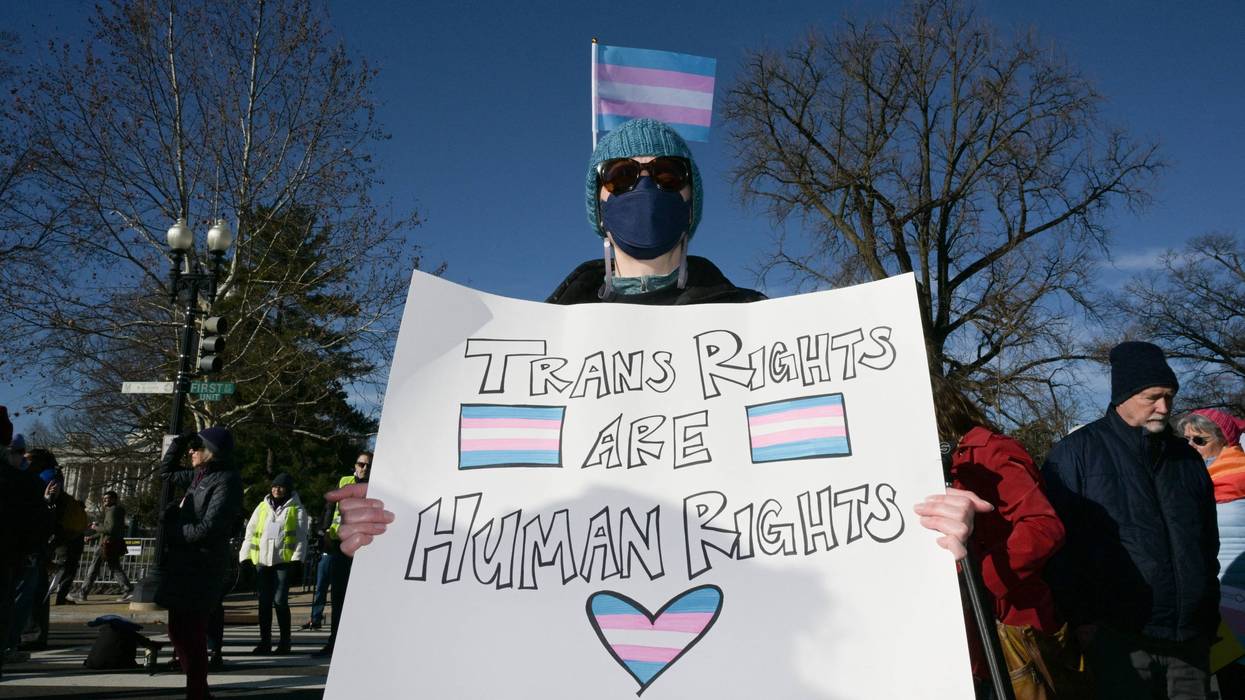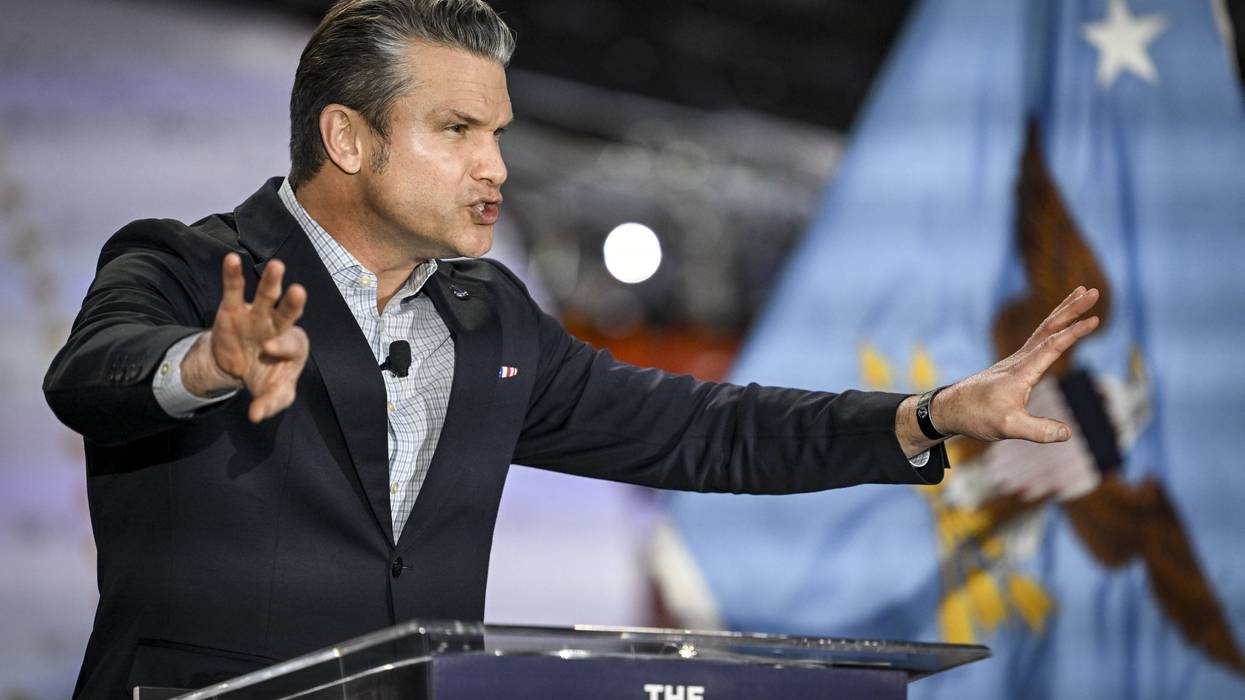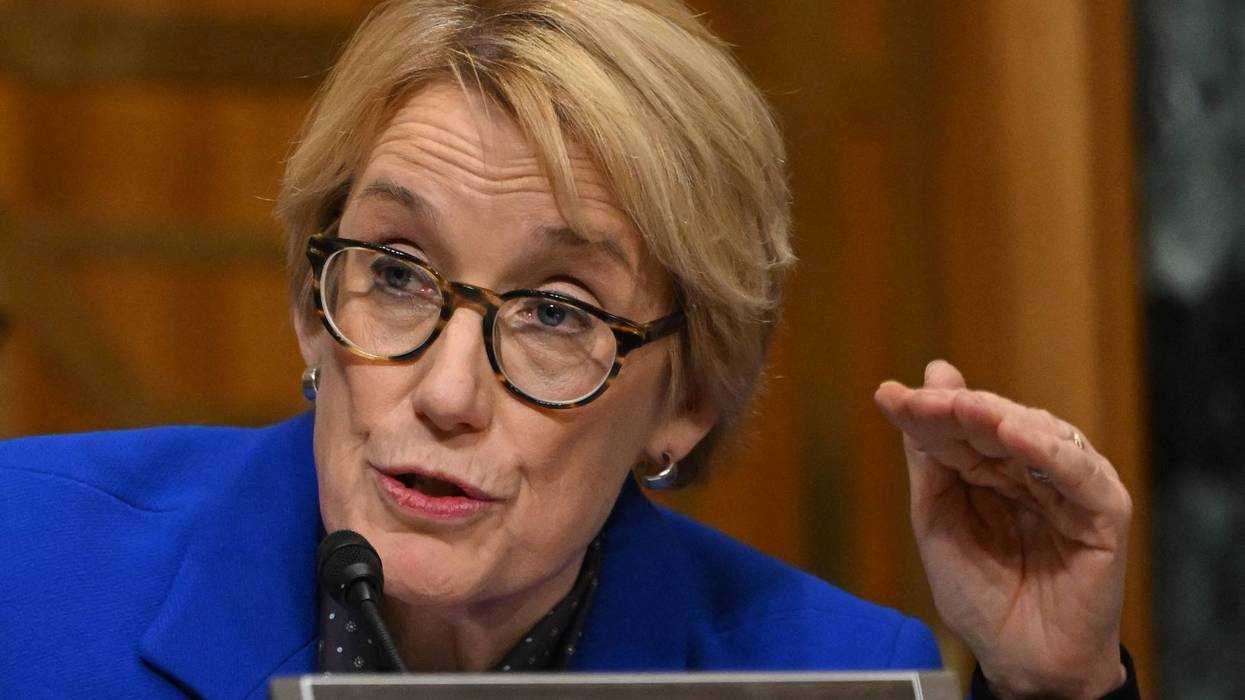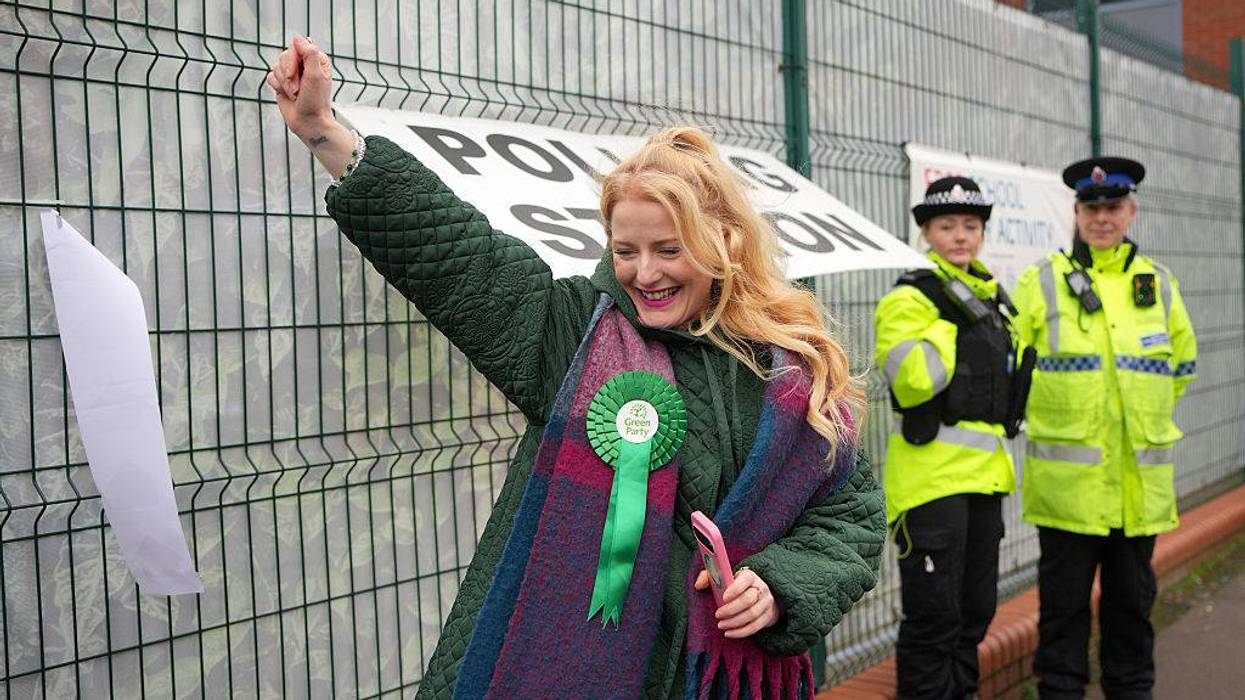LIVE COVERAGE
Less Than 36 Hours to Go
If we fall short of our Winter Campaign goal, Common Dreams won’t have the funding needed to keep publishing in the weeks and months ahead. No corporate sponsors. No billionaires. We are funded entirely by readers, and these periodic campaigns are vital to our strength and survival.
At a moment when authoritarianism is on the rise and the corporate media is climbing into bed with fascism, nonprofit independent news outlets like Common Dreams need to be expanding our capacity, not cutting back.
Please give what you can to help meet our Winter Campaign goal by March 1. Every contribution moves the meter and helps keep independent journalism alive.
For Now A Prince. How Long Till A (Fake) King?
The arrest of the U.K. rapist formerly known as Prince, and the echoing, trans-Atlantic edict that no one is above the law, lay ever-barer America's "true exceptionalism": A culture of immunity so corrosive our own heinous, in-his-fever-dreams "exonerated" Predator-In-Chief has enragingly yet to face any consequences for his manifold sins, crimes, cruelties and depravities, petty and profound. Finally, says Epstein survivor Maria Farmer, "(Let) all the dominoes of power and corruption begin to fall."
The stunning arrest by Thames Valley Police of "Andrew Mountbatten-Windsor" - notably, not "His Royal Highness," ”the Duke of York" or other niceties - on his 66th birthday was widely seen as not just an arrest but "a transfer of power," a possible, long- awaited shift in the tides for once-untouchable elites of the Epstein class that announces power and status may no longer keep them safe, at least outside the crooked U.S. Shortly after 8 a.m., police arrived in six unmarked vehicles at Wood Farm on King Charles’ Sandringham Estate to haul Andrew off; they also reportedly searched his former residence near Windsor Castle. The charge, "suspicion of misconduct in public office" - talk about your euphemisms - stems from Andrew's term as UK trade envoy from 2001 to 2011, when he allegedly shared with Jeffrey Epstein confidential government reports on potential investment opportunities from Vietnam, Singapore, China and Afghanistan.
The envoy gig mandates a "duty of confidentiality"; any "abuse of public trust" that uses public power as "private currency for self-serving or nefarious reasons" carries a maximum sentence of life in prison. (Just imagine what they'd make of the Trump cartel's brazen, perennial grifting.) Andrew, of course, has also been charged with raping outspoken Epstein victim Virginia Giuffre, who died by suicide last year at 41, which led to him being stripped of his royal titles before slinking out of public view. Regrettably, he never faced a rape charge in court due to several factors - a civil settlement with Giuffre, a high bar for conviction beyond a reasonable doubt, and other legal loopholes. Presumably for some Epstein victims, bringing Andrew to even a modicum of justice on the easier-to-prove misconduct in office charge may feel dispiriting, like nabbing the murderous Al Capone for tax evasion: Better than nothing, but not good enough.
Andrew's was the first arrest of a senior member of the British royal family in modern history. The last one arrested was King Charles I in 1647, following his defeat in the English Civil War by Parliamentarian forces; a believer in the divine right of kings, his tyrannical reign led to his imprisonment, trial for high treason, and beheading in 1649 - the moral arc of the universe moved faster then. After Andrew's arrest, his brother King Charles, who had received no warning beforehand, issued a statement on, not his bro but “Andrew Mountbatten-Windsor”; he expressed “deepest concern" but "whole-hearted support" for the investigation: "Let me state clearly: the law must take its course." Others cited the same probity. Prime Minister Keir Starmer: "No one is above the law.” The family of Virginia Giuffre: "No one is above the law, not even royalty." Heartbreakingly, they added, "For survivors everywhere, Virginia did this for you."
Waxing cautious about possible shifts in power, The Mirror’s Christopher Bucktin notes, "A birthday arrest should not stand alone as a rare spectacle. It should signal something larger: that no title, no fortune, no political office is sufficient armour against the law...Justice cannot stop at one imprisoned accomplice while others retreat behind legal teams and influence." A new report from the UN's Human Rights Council, which finds Epstein's wrongs "may reasonably meet the legal threshold of crimes against humanity," echoes him. Arguing the files' "credible evidence of systematic and large-scale sexual abuse, trafficking and exploitation" - thus contradicting the "little evidence" bullshit of our DOJ and FBI - it dismisses vapid calls to "move on" as "a failure of responsibility towards victims." Resignations alone aren't enough, it adds: "It is imperative that governments act decisively to hold perpetrators (criminally) accountable."
As further evidence "Epstein elites can't hide anymore" - except, yes, infuriatingly, here - active investigations of Epstein-related crimes in 16 countries are now sweeping up officials on both sex-trafficking and corruption charges; Canada will reportedly open the next one. In the UK, former ambassador to the U.S. Peter Mandelson was fired and is under investigation - oops, now arrest - for passing on financial info to Epstein; Starmer’s chief of staff, who appointed Mandelson, also resigned. In Norway, a former prime minister was charged with "gross corruption” for his Epstein ties, and two diplomats are being investigated. In France, so are a former Culture Minister, his daughter and a senior diplomat. Non-Epstein-related justice has also come for South Korea's former President Yoon Suk Yeol - a life sentence with hard labor for an insurrection - and Brazil's Bolsonaro, whose 2023 coup attempt got him 27 years, and no pardons.
"This is what accountability looks like," argues David Kurtz of Andrew's arrest and all the rest, which "sends a signal far beyond London - straight to Washington." What it proclaims: "If the King's own brother is not above the law, neither is the King's dinner guest, nor his Commerce Secretary." Infernally, the lesson has yet to be heeded in an America ruled by a two-bit, 34-count felon and rapist abetted by a cabal of flunkies managing a Mafia-style criminal regime with no bottom and a corrupt SCOTUS whose "out-of-thin-air immunity doctrine" has made him less accountable than actual royalty - spawning a nation "exceptional among developed nations solely in (its) unwillingness to hold the powerful to account, even in the most egregious cases." Confirming that stark reality was last week's unfurling, outside the DOJ, of a huge banner of Dear Leader, "an abomination and an outrage" straight-up declaring our alleged justice system "a pure creature of presidential whim, retribution and cover-up."
Meanwhile, despite Epstein files that "scream 'Guilty" - with his hideous name appearing over 38,000 times in 5,300 released files representing just 2-4% of the grisly whole - Trump had the chutzpah to respond to a question about the possible ripple effect at home of Andrew's arrest by professing, four times in 30 seconds, he's been "totally exonerated." "Well, you know, I'm the expert in a way, because I've been totally exonerated," he blustered, prattling on in toddler-ese. "I did nothin'. It’s very nice. I can actually speak about it very nicely. I think it’s a shame. I think it’s very sad. It’s very, very sad to me. It’s a very sad thing. To see it, and to see what’s going on with his brother. King. So I think it’s a very sad thing." Fucking Christ. Nope, wasn't me, nothing to see here, not a creep, all good, if sad. And not a word on the survivors. Appalled observers: "Guilty as fuck," "The man on my TV screen is batshit crazy," and, "I hope to live long enough to see this POS in a cell with an open toilet." Or maybe none?
Epstein’s carefully curated, now slowly splintering network of elites included billionaires, academics, politicians, scummy MAGA hangers-on like Steve Bannon - “Dude. You up??" - with culpability circling ever closer to Trump. A trove of damning evidence has surfaced, from the removal of 53 files bearing his name to journalist Roger Sollenberger's account of disappeared allegations in a civil complaint and FBI slideshow that the DOJ spoke four times to a Jane Doe who credibly charged she was forced to perform oral sex on Trump when she was about 14; when she bit down on his penis, she said he punched her in the head, kicked her out, and later raped her vaginally and anally. Experts say such emerging stories of abuse reveal a ghastly, familiar pattern; the latest, in Alaska, is "nothing short of horrifying." Thus does Masha Gessen argue that it's time for us to stop speaking of the Epstein story "as a story about extraordinary lawlessness. It is a story about ordinary lawlessness."
Dating back, in Trump's case, a savage lifetime. By now he's committed most of the crimes Thomas Jefferson charged King George with in the Declaration of Independence - ignored laws "necessary for the public good," sent "swarms of Officers to harass our people," kept "Standing Armies without Consent," altered "fundamentally the Forms of our Government," ravaging due process, free speech, health care, civil rights, history itself. The lies, deaths, grift, cruelty, unceasing assaults on decency. The "monstrous machine" to snatch up and spit out thousands of innocents - "¡Libertad!” - in concentration camps. The children trapped with cancer, measles, trauma: "Please get me out of here." Two-month old Juan Nicolás, unresponsive in Dilley, choking on his vomit, abruptly deported with his family to Mexico, tracked down and cared for thanks to "America's most relentless immigration reporter," because, "The story is rarely the policy - (it's) the person standing in the rubble of the policy."
Today, the two essential pillars of Trump's "fantasy version of nationalist renewal" - ethnic cleansing and tariffs - are both rubble, rejected by the public, the courts and even a corrupt SCOTUS, which enraged him so much he revived a cringe John Barron to rave about the "fools and lap dogs” who rejected his cherished tariffs and the imaginary hundreds of billions they brought in to make us '"the hottest country." The drek kept spewing. He praised lickspittles Thomas, Alito, Beer Keg Brett for "their strength and wisdom," especially Beer Keg, "for his, frankly, his genius." He respects them "because they not only dissented, their dissent is so strong. I'm very good at reading language and it read our way 100%...My thousands of victories...Like the wars I stopped. The Prime Minister of Pakistan said I saved 35 million lives by getting them to stop. That's -- and I did it largely with tariffs." He's vowed new tariffs, "and they can all be used in a much more powerful and obnoxious way." So much winning.
Also somewhere he asked the owner of "they made steel products" how he was, and the man said, "I'd love to kiss you," because "we were down to working one hour a week and then you came in and imposed tariffs (and) now we're going to double shifts seven days a week and maybe to 24 hours almost seven days a week, we're hiring people like we haven't - like I've never..." Trump: "Nobody's standing in (the) position I have as president had the insight, the courage, I don't know what it is. They're all pouring into the United States. But just like that great patriot said, Sir, what you've done, nobody thought was possible." As to "slimeball" Gorsuch and Coney Barret, they're "an embarrassment to their families" and were "swayed by foreign interests." Dems were intrigued: The Judiciary Committee's Jared Moskowitz felt he should find out more about them, and another Dem felt the next president "will have no choice but to replace all 9 members with new justices with no foreign entanglements."
On Saturday, the White House held the annual Governors' Dinner, designed to "build relationships and discuss things in a bipartisan way." Historically, the staid, candle-lit, black-tie affair - Melania wore $2,400 silver foil pants - can serve as a genial distraction from Congressional battles. In this rancorous moment, it was a shitshow - actors on both sides alternately called it "a farce" and "a glowing evening" - because after the Mad Hatter King uninvited two Dems, the only Black and only openly gay governor, Dems all boycotted it what became a MAGA ass-kissing fest. Trump used the moment to blame two Dem governors for a sewage spill in the Potomac River. "We have to clean up some mess Maryland and Virginia have left us," he snarled. "It's unbelievable what they can do with incompetence." The ruptured pipe is part of a D.C.-based, federally regulated utility under the oversight of the U.S. EPA. As to "mess," we hope to see this face replicated soon at home.
"It could go either way. There's no other way. You have other ways you can go. You don't have to go that way. You can go other way." - Donald J. Trump, lifelong sexual and financial predator and deeply, deeply shameful President of the United States of America

Big Tech's 'AI Climate Hoax': Study Shows 74% of Industry's Claims Unproven
A report released on Tuesday says that the tech industry is blowing hot air with its claims that generative artificial intelligence will be beneficial for the climate.
The report, titled "The AI Climate Hoax," was commissioned by a broad consortium of environmental advocacy organizations and authored by climate and energy analyst Ketan Joshi.
In total, it analyzes more than 150 statements made by both big tech companies and organizations such as the International Energy Agency about the supposed benefits of generative AI.
The report finds that 74% of such claims made by these institutions are unproven, with 36% not bothering to cite any evidence whatsoever.
One key finding in the report is that many claims about the purported benefits of the technology conflate traditional AI systems with more recent generative AI systems, which require massive amounts of energy and are spurring demand for the construction of power-and-water-devouring data centers across the US.
"Even if these benefits are real," the report writes of traditional AI systems, "they are unrelated to—and dwarfed by—the massive expansion of energy use from the generative AI industry," which is projected to to consume 13 times as much energy as traditional AI by the year 2030.
Even the more supportable claims about the benefits of traditional AI deserve serious scrutiny, the report notes, since "they tend to rely on weaker forms of evidence, such as corporate websites, rather than published academic research," which was only cited in 26% of claims made about AI benefits.
The report also knocks big tech companies for using assorted strategies to conceal the true extent of their energy use, including buying renewable energy certificates even while relying on fossil fuels to power their operations, and vowing to implement highly implausible solutions to mitigate the climate impact of data centers, including carbon capture technologies and even building orbital data centers in space.
Commenting on the report, study author Joshi said its findings seem to show "tech companies are using vagueness about what happens within energy-hogging data centers to greenwash a planet-wrecking expansion."
"The promises of planet-saving tech remain hollow, while AI data centers breathe life into coal and gas every day," Joshi added. "These claims of climate benefit are unjustified and overhyped, and could cover up irreversible damage being done to communities and society."
Jill McArdle, international corporate campaigner at study sponsor Beyond Fossil Fuels, said the study shows "there is simply no evidence that AI will help the climate more than it will harm it," and accused Big Tech companies of "writing themselves a blank cheque to pollute on the empty promise of future salvation."
AI data centers have become a major controversy throughout the US in recent months, as their massive energy needs have pushed up utility bills and put a strain on communities’ water supplies.
A study published in the journal Nature Sustainability last year found that data centers could soon consume as much water as 10 million Americans and emit as much carbon dioxide as 10 million cars, or roughly the same amount of consumption as the entire state of New York.
Ahead of State of the Union Address, Progressive Caucus Leader Tells Trump: ‘We Need Our Money Back’
Now that the US Supreme Court has ruled President Donald Trump levied illegal tariffs on US businesses and consumers for more than a year, progressive Democrats are escalating demands that Americans get their money back.
Days after the Supreme Court shut down Trump's ability to unilaterally enact tariffs through the International Emergency Economic Powers Act (IEEPA), Congressional Progressive Caucus Chair Greg Casar (D-Texas) said on Tuesday that during the State of the Union address, Trump should announce refunds for Americans he unlawfully taxed.
"Americans don’t need a rambling, two hour lecture from Trump," Casar wrote in a social media post. "We need our money back. He owes us: $1,700 in illegal tariffs per family; $4 billion he’s profited off the presidency; $1 trillion he stole in tax breaks for the ultra-rich. Spare us the speech. Pay up or shut up."
Casar's demands for tariff refunds aren't isolated.
Politico reported on Monday that Democrats have pounced on the Supreme Court ruling to deliver a simple message to voters: Trump wrongfully took your money and should return it.
Rep. Steven Horsford (D-Nev.), who along with Rep. Janelle Bynum (D-Ore.) introduced legislation mandating tariff refunds on Friday, accused Trump of outright thievery.
"When someone takes money that wasn’t authorized and does it in a way that harms you," Horsford told Politico, "they’ve stolen from you, and that is what the Trump administration has done for the last year."
Horsford's rhetoric echoed a statement made by Sen. Elizabeth Warren (D-Mass.), who said in the wake of the Supreme Court ruling last week that Trump "illegally stole your money" and "should give it back to you" instead of trying to cook up new ways to slap tariffs on imported goods.
Groundwork Collaborative on Tuesday previewed Trump's State of the Union speech by noting the president has totally failed to keep his promise to bring down prices, adding that his tariffs "cost the average working family nearly $1,200 last year."
"No matter what Trump says in the upcoming State of the Union address," Groundwork Collaborative said, "it won’t change the fact that working families know that the president and his lackeys in Congress alone bear responsibility for painfully high prices and a dragging economy."
Although the Supreme Court clipped Trump's power to levy tariffs via the IEEPA, he has since announced plans to issue a 15% global tariff using his authority under Section 122 of the Trade Act of 1974, which allows the president to levy tariffs to address “large and serious” balance-of-payments deficits with foreign nations.
However, as a recent analysis by the libertarian Cato Institute explained, any tariffs enacted through Section 122 expire after 150 days without authorization from Congress, which in theory could put vulnerable congressional Republicans on the spot to vote for or against the president’s signature economic policy this summer right before the 2026 midterm elections.
'Despicable': Vance, Oz Announce Freeze on Some Medicaid Funding for Minnesota
US Vice President JD Vance said Wednesday that the Trump administration will pause some Medicaid funding for Minnesota over fraud concerns—without offering any guarantees that the suspension will not adversely impact the more than 1 million Minnesotans who depend upon the key healthcare program.
"We're announcing today that we have decided to temporarily halt certain amounts of Medicaid funding that is going to the state of Minnesota in order to ensure that the state of Minnesota takes its obligations seriously to be good stewards of the American people's tax money," Vance said at a White House press conference with Centers for Medicare and Medicaid Services (CMS) Administrator Mehmet Oz.
"Now what is this gonna mean?" Vance continued. "What this means is that, first of all, the providers on the ground in Minnesota have actually already been paid... What we're doing is we are stopping the federal payments that will go to the state government until the state government takes it obligations seriously to stop the fraud that's being perpetrated."
They already targeted SNAP in Minnesota. They’ve killed two Minnesotans and injured or kidnapped hundreds more. Now they’re stealing their Medicaid. They’re going to deny people healthcare because of a YouTube video about a Somali daycare scam that wasn’t even true.
[image or embed]
— Kelly (@broadwaybabyto.bsky.social) February 25, 2026 at 3:05 PM
Oz demanded that Democratic Minnesota Gov. Tim Walz determine "who these providers are; make sure they're not already in trouble for doing bad stuff, and then reevaluate all the current providers to make sure they're supposed to be able to provide these services."
Responding to Oz's remarks, Gaia Leadership Project founder Elizabeth Cronise McLaughlin said on Bluesky, "So Minnesota is supposed to review every appointment by a Medicaid recipient with every doctor to get funds already lawfully allocated to the state?"
Asked by a reporter how he intends to ensure that the funding pause "doesn't impact the people who are enrolled in Medicaid," Vance said he is "worried about the justice of it all."
"I think it's offensive that American taxpayers pay into these programs and they're defrauded... and it's really sad that American children who need these services are unable to get them, because they're going to fraudsters," Vance replied.
"Look, we're certainly gonna make sure that our anti-fraud efforts go after the fraudsters and not after anybody who actually benefits from these services," he continued. "But I actually think the question is a little off, in a way, because the problem is not going after the fraud, the problem is that these programs are being defrauded to begin with."
"Our social safety net will disappear unless we take fraud more seriously," added the vice president, whose boss, President Donald Trump, last year signed into law the biggest cuts to Medicaid and the Supplemental Nutrition Assistance Program, or SNAP, in the nation's history as part of the One Big Beautiful Bill Act.
Medicaid is the primary healthcare safety net for lower-income Americans, with nearly 70 million people enrolled nationwide at the end of last year.
While federal prosecutors are investigating Minnesota’s Medicaid system—specifically, 14 high-risk service programs such as housing support and personal-care services—on suspicion of billions of dollars in fraudulent billings since 2018, and dozens of people have been convicted of stealing public money through the state’s social services system, critics noted that Congress, not the president, has the power of the purse.
Some observers noted that Trump has already targeted Minnesota—which voted against him all three times he ran for president—with his deadly crackdown on undocumented immigrants and their defenders and racist attacks on Somali immigrants, including Congresswoman Ilhan Omar (D-Minn.).
The Medicaid freeze follows the Trump administration's $10 billion cut in federal childcare funding to five Democrat-led states, including Minnesota, last month—a move that opponents argue punishes working families who committed no fraud.
University of Illinois professor Nicholas Grossman called the Medicaid pause "taxation without representation."
"The Constitution clearly gives Congress the power to spend taxpayer funds, and no law allows the president to halt if he feels some US states aren’t being 'good stewards' of the money," he said on Bluesky. "In case there’s any confusion on this, the Impoundment Control Act forbids it."
"The people of Minnesota vote for representatives to Congress," Grossman added. "Minnesota representatives and senators were in DC, representing their constituents, when Congress passed laws using proper procedure that allocated Medicaid funding. The president breaking those laws violates the fundamental compact of the republic."
Oz on Wednesday also announced "a six-month national moratorium blocking all new enrollments for durable medical equipment—prosthesis, orthotics—supplies across the board" in the name of fighting fraud. The move targets suppliers, not individual Medicaid beneficiaries.
This from Oz, a promoter of privatized Medicare Advantage programs, which are notorious for overcharging taxpayers and denying patients necessary care. The CMS under Oz increased federal funding for Medicare Advantage plans by more than $25 billion for 2026.
As Common Dreams recently reported, United Health Group (UHG), one of the country's largest for-profit health insurance companies, has been the leading beneficiary of a long-running Medicare Advantage fraud scheme that the Medicare Payment Advisory Commission—an independent, nonpartisan legislative branch agency—warned could cost US taxpayers $1.2 trillion over the next decade.
Some critics said that if Trump really cared about fraud, he'd go after companies like UHG—and stop pardoning so many convicted criminals who committed billions of dollars worth of fraud.
"These guys are despicable," Michigan State University professor Brendan Cantwell said Wednesday in response to Vance and Oz's announcement.
Robert Weissman, co-president of the consumer advocacy group Public Citizen, said in a statement Wednesday that “Medicaid fraud is a serious problem that requires cracking down on fraudsters—not patients."
Weissman continued:
This administration’s anti-fraud rhetoric is itself a fraud. In fact, the administration has gutted anti-fraud government agencies and programs and let fraudsters off the hook. It has issued record-breaking pardons to fraudsters; sought to eliminate the most important anti-consumer fraud agency, the Consumer Financial Protection Bureau; eviscerated the corps of inspectors general whose job is to root out waste, fraud, and abuses; and dropped dozens of fraud and fraud-related investigations against large corporations.
“The Trump administration suspension of Medicaid funding in Minnesota is a bad-faith, punitive, and shameful measure that will punish people in Minnesota as part of the same deceptive story that the Trump administration has told to justify the outrageous [Immigration and Customs Enforcement] invasion of the state," Weissman added.
'A Global Failure': UN Says 7,667 People Died or Went Missing on Migration Routes in 2025
A United Nations organization announced Thursday that at least 7,667 people died or went missing on migration routes worldwide last year—or around 21 migrants per day—but "the real toll is likely higher."
"Sea crossings remained among the deadliest routes," according to the International Organization for Migration. IOM found that at least 2,185 people died or went missing in the Mediterranean Sea, and another 1,214 on the Western Africa/Atlantic route toward the Canary Islands.
Nearly two months into a new year, the trend in the Mediterranean has persisted. IOM pointed to the "unprecedented number of migrant deaths in the first two months of 2026, with 606 recorded" as of Tuesday.
"The continued loss of life on migration routes is a global failure we cannot accept as normal," said IOM Director General Amy Pope in a statement. "These deaths are not inevitable. When safe pathways are out of reach, people are forced into dangerous journeys and into the hands of smugglers and traffickers."
"We must act now to expand safe and regular routes, and ensure people in need can be reached and protected, regardless of their status," Pope asserted.
Despite such calls, the European Union has worked to curb migration to the continent with its Pact on Migration and Asylum—which has been condemned as a "bow to right-wing extremists and fascists," and is set to take effect next June—and the related "return regulation" that the Council of the EU finalized in December.
"The EU is legitimizing offshore prisons, racial profiling, and child detention in ways we have never seen," Sarah Chander, director at the Equinox Initiative for Racial Justice, said of the council's move last year. "Instead of finding ways to ensure safety and protection for everybody, the EU is pushing a punishment regime for migrants, which will help no one."
Reporting on the new IOM data, Politico noted Thursday:
The EU's priority now is "about bringing illegal arrivals to a minimum and keeping those numbers there," Migration Commissioner Magnus Brunner said when presenting the bloc's migration strategy in January.
That's "not as an end in itself," he said, but reduces pressure on EU countries, prevents abuse, reinforces people's trust in the EU, and helps save lives. "Any smuggling trip prevented is potentially a life which we save."
As a next step, the EU "must address migration along the whole route," including by ensuring protection for people in need "closer to the point of departure," Brunner said.
Meanwhile, in the Americas, US President Trump returned to power in early 2025, having campaigned on a promise of mass deportations. He's aimed to deliver on the pledge by deploying federal agents to various cities, where they have terrorized immigrants and citizens alike with civil rights violations and, in some cases, fatal shootings.
IOM only recorded 409 deaths in the Americas last year, the lowest annual total since its data collection began in 2014. The organization said that "this is likely due to fewer people taking dangerous irregular pathways, such as crossing the Darien Jungle or the US-Mexico border. However, lags in reporting from officials means that the figures for 2025 in the Americas likely will not be finalized until mid-2026."
The overall figure is also down, from nearly 9,200 in 2024. However, IOM explained that "the decline reflects fewer people attempting dangerous irregular migration routes, particularly in the Americas, but is also due to restricted access to information and funding constraints for humanitarian actors documenting migrant deaths on key routes."
IOM called for "urgent funding to strengthen data collection to better guide the humanitarian system in delivering lifesaving responses."
Reuters highlighted that "the Geneva‑based organization is among several aid groups hit by major US funding cuts, forcing it to scale back or close programs in ways it says will severely impact migrants."
Hegseth Demands Anthropic Let Military Use AI However It Wants—Even for Autonomous Killer Drones and Spying On Americans
Defense Secretary Pete Hegseth has threatened to punish the artificial intelligence company Anthropic if it doesn't let the Pentagon use its technology however it wants—apparently even to create autonomous killer drones or conduct surveillance of Americans.
Anthropic's powerful AI model, Claude, is currently the only one permitted to handle classified military data, and the company was awarded a $200 million contract last year to develop AI capabilities for the Department of Defense to use alongside other AI firms.
However, the company's usage policy prohibits its use for mass surveillance and for the development of autonomous weapons—such as drones that attack targets without a human operator.
These limitations have infuriated the Defense Department leadership. On Tuesday, Hegseth called Anthropic's CEO, Dario Amodei, to a meeting at the Pentagon, where he demanded "unfettered" access to Claude without any guardrails.
This goal was outlined last month in the department's "AI Strategy" memo, which called for the US to adopt an "AI-first warfighting force" and for companies to allow their technology to be deployed for "any lawful use," free from ethical safeguards.
According to a senior defense official who spoke to Axios, Hegseth issued an ultimatum to Amodei on Tuesday: If he does not grant the Pentagon unrestricted use of Anthropic's technology by 5:01 pm on Friday, the department would take measures to coerce the company.
It would either declare Anthropic a "supply chain risk," effectively blacklisting it for military use and ending its contract, or it would invoke the Defense Production Act, which would force the company to tailor the product to the military's needs.
While it would not be an unusual step for the Pentagon to cut ties with Anthropic, threats to declare it a supply chain risk have been described as extraordinary.
Jessica Tillipman, the associate dean for government procurement law studies at George Washington University, who specializes in AI governance, wrote on social media that the threat of "declaring Anthropic a supply chain risk is deeply problematic," as it's "generally something we reserve for products that create security risks, and using it in this way undermines its purpose."
As Elizabeth Nolan Brown wrote on Wednesday for Reason, it "would mean anyone who wants to work with the US military in any capacity must sever ties with the AI company," which could deal a major blow to the business.
Last month, Amodei published an essay about how "AI-enabled autocracies" could use the technology to surveil and repress their citizens and wage war on less developed countries:
A swarm of millions or billions of fully automated armed drones, locally controlled by powerful AI and strategically coordinated across the world by an even more powerful AI, could be an unbeatable army, capable of both defeating any military in the world and suppressing dissent within a country by following around every citizen...
A powerful AI looking across billions of conversations from millions of people could gauge public sentiment, detect pockets of disloyalty forming, and stamp them out before they grow. This could lead to the imposition of a true panopticon on a scale that we don’t see today.
Amodei reportedly resisted Hegseth's demands to lift restrictions at Tuesday's meeting, refusing to budge on the two key issues of mass surveillance and autonomous weapons. Following reports of the meeting, the company has said it still wants to work with the government while also ensuring its models are used in line with what they could “reliably and responsibly do.”
A senior Pentagon spokesperson said the military must be free to use the technology how it sees fit. According to the Associated Press, the official argued that "the Pentagon has only issued lawful orders and stressed that using Anthropic’s tools legally would be the military’s responsibility."
The question of whether the Pentagon has issued only "lawful" orders is in dispute—in fact, the Pentagon is fighting to cut the retirement pay of Sen. Mark Kelly (D-Ariz.), a retired Navy captain, after he made a video in November reminding active duty troops that they have a duty not to obey illegal orders.
That video was made in response to reports that Hegseth had given orders to bomb the survivors of one of the administration's boat strikes in the Caribbean—an act described as a potential "war crime" amid a broader campaign that legal experts have said is illegal under both US and international law.
The military also reportedly used Claude as part of another legally questionable act last month: the operation to kidnap Venezuelan President Nicolás Maduro, which involved bombing across Caracas and killed at least 83 people. It is not clear how the model was used during the attack.
While the Pentagon has not specified which restricted activities it wishes to pursue using Anthropic's technology, Sen. Ruben Gallego (D-Ariz.) said that with his demands, Hegseth was essentially telling the company, "Let us use your AI for mass surveillance, or we’ll pull your contract."
Under President Donald Trump, Gallego added, “corporations are punished for refusing to spy on American citizens.”
Congress Finds 4 Data Breaches Cost Public $20 Billion, Fueling Calls for Action to 'Protect Americans From Scams'
"As international criminal syndicates increasingly use scams to target Americans, data brokers shouldn’t make it harder for people to protect themselves," said the Joint Economic Committee's ranking member.
Just four major data broker breaches in recent years have cost US consumers over $20 billion, according to a Thursday report from a key leader in Congress that argues "additional action is needed to protect Americans from scams."
Sen. Maggie Hassan (D-NH), ranking member of the congressional Joint Economic Committee (JEC), launched a sweeping investigation into financial scams last July. As part of it, she's examined data brokers, which collect and sell individuals' personal information. These companies often operate with limited transparency, her report explains, making it "more difficult for individuals to secure their information online and, ultimately, protect themselves from the growing threat of scams."
"Data brokers, for example, can enable scams by making consumers' personal information available to bad actors, who can then use details like Social Security numbers, home addresses, or banking information to develop customized and convincing scams," the report explains. "In some cases, data brokers have allegedly sold this information directly to scammers; in others, cyber hacks of data brokers have exposed individuals' data to uncontrolled circulation online."
Last August, after Wired reported that some data brokers took steps to hide their opt-out pages, Hassan issued investigative requests to Comscore, Findem, IQVIA Digital, Telesign, and 6Sense Insights. The report states that all of the companies but Findem responded with "actions to make their opt-out options more accessible to consumers and other parties," which "included removing 'no index' code that had blocked opt-out pages from search engine results, adding opt-out links in more prominent locations, and publishing blog content explaining how people can exercise their privacy rights."
"Notably," the report continues, "Findem did not respond to the ranking member's requests or written outreach from committee staff and has not removed the 'no index' code from its opt-out page—raising serious concerns about its responsiveness to opt-out requests and commitment to data privacy."
While recognizing the other companies for their positive responses, Hassan's report also stresses that more must be done. For instance, she requested information about efforts "to audit or assess the visibility of opt-out options or the success rates of opt-out requests," and "only 6sense stated that it contracts with third-party auditors to conduct both of these assessments."
Highlighting the need for further action, Hassan's staff estimated that identity theft stemming from four large data broker breaches—Equifax in 2017, impacting 147 million US residents; Exactis in 2018, impacting 230 million; National Public in 2023, impacting 270 million; and TransUnion in 2025, impacting 4.4 million—cost American consumers $20.9 billion.
"As international criminal syndicates increasingly use scams to target Americans, data brokers shouldn't make it harder for people to protect themselves," Hassan said in a statement. "This report shows the scope of the threat that people face from data broker breaches and underscores the importance of protecting Americans' private data."
She added that "it is encouraging that after we launched our investigation, many companies took steps to improve opt-out options for Americans, which in turn can help more consumers keep their information out of the wrong hands."
As a related webpage from the Electronic Privacy Information Center details: "There is no federal law in the United States that adequately regulates the data broker industry. As a result, private companies invade our private lives, spy on our families, and gather our most intimate facts, on a mass scale, for profit. EPIC supports state and federal legislative efforts that set limits on data brokers’ collection, use, retention, and disclosure of personal data."
In recent years, members of Congress have introduced various legislative proposals aimed at reining in data brokers—including in the Security and Freedom Enhancement (SAFE) Act, introduced on Monday. The bipartisan bill would, among other things, close the so-called "data broker loophole" that, as Sens. Dick Durbin (D-Ill.) and Mike Lee (R-Utah) put it, "intelligence and law enforcement agencies use to buy their way around the Fourth Amendment" to the US Constitution.
There are some limits that have passed, including in Protecting Americans’ Data from Foreign Adversaries Act of 2024. Earlier this month, the Federal Trade Commission sent letters reminding 13 companies of their obligations to comply with the PADFAA, which "prohibits data brokers from selling, licensing, renting, trading, transferring, releasing, disclosing, providing access to, or otherwise making available personally identifiable sensitive data of a United States individual to any foreign adversary country or any entity that is controlled by a foreign adversary."
However, as Lartease Tiffith, an expert at American and George Mason universities, laid out in an article for Just Security last November, while Congress enacted the PADFAA "with the right goal," the law, as written, "could penalize legitimate US companies for routine global operations while failing to deliver the targeted national security tool Congress intended."
Green Party Scores Upset Win in UK Election in Blow to Labour, Far-Right Reform
"Instead of working for a nice life, we’re working to line the pockets of billionaires," victorious Green Party candidate Hannah Spencer said during her victory speech. "We’re being bled dry."
Green Party candidate Hannah Spencer on Thursday won an upset victory in a byelection in the Gorton and Denton constituency, delivering a blow to both Labour Prime Minister Keir Starmer and the far-right Reform Party led by Nigel Farage.
As reported by the Guardian, Spencer, a local plumber, won by overturning a 13,000-vote majority that the Labour Party achieved in the 2024 general election.
In fact, Labour fell to third place in the Thursday election, winning 9,364 votes, compared to 14,980 votes for the Greens and 10,578 votes for Reform.
In her victory speech, Spencer emphasized major class divides in the UK, where she said people are working increasingly harder for fewer benefits.
"Working hard used to get you something," she said. "It got you a house. A nice life. Holidays. It got you somewhere. But now—working hard? What does that get you?... Instead of working for a nice life, we’re working to line the pockets of billionaires. We’re being bled dry."
The Green Party said Spencer's victory showed it was now a viable force in national elections, projecting that it is "on track to win over a hundred seats at the next general election, if the historic swing achieved to win Gorton and Denton is replicated nationwide."
Green Party leader Zack Polanski hailed the election result and predicted "a tidal wave of new Green MPs" in future elections should current trends continue.
"When I was elected Leader of the Greens I said we were here to replace Labour and I meant it," Polanski said. "Hannah was a fantastic candidate and I know she’ll make a brilliant MP."
Starmer, who has pushed the Labour Party to the right on issues such as immigration and transgender rights during his tenure, reacted bitterly to the defeat in a letter he sent to other Labour MPs.
"The result in Gorton and Denton is deeply disappointing," Starmer wrote. "Instead of a Labour MP who can be a local champion delivering for Gorton and Denton alongside a Labour Government and a Labour mayor, the people of Gorton and Denton now have a representative who is more interested in dividing people than uniting them."
Starmer, whose job approval rating in polls is consistently under 20%, also predicted that "over the coming months, people will feel the benefit of the long-term decisions this government is taking."
Socialist commentator Owen Jones, a longtime Starmer critic, gloated over the result in a social media post in which he reminded followers of Starmer's past statement that left-wing voters could "leave" if they didn't like the changes he was making to Labour.
"OK, Keir Starmer, we did as you asked us!" he wrote. "Happy now?"
Hundreds Reportedly Killed as 'Open War' Breaks Out Between Pakistan and Afghanistan
A spokesperson for the head of the United Nations implored both sides to "seek to resolve any differences through diplomacy."
This is a developing story... Please check back for updates...
Pakistan's defense minister said Friday that his country and Afghanistan are in an "open war" after Afghan forces attacked Pakistani border troops in what Kabul characterized as retaliation for recent airstrikes.
Pakistan, which has nuclear weapons, responded to the attack on its border troops with airstrikes on at least three Afghan provinces early Friday, reportedly killing more than 220 people. A spokesperson for Afghanistan's Taliban government said its forces killed dozens of Pakistanis in Thursday's onslaught.
Al Jazeera’s Kamal Hyder, reporting from Pakistan on Friday, said that "we were able to see and hear outgoing fire from the Pakistani side that appears to be heavy artillery, which means that the clashes are still continuing."
Stéphane Dujarric, a spokesperson for United Nations Secretary-General António Guterres, said the UN chief is alarmed by the escalating hostilities and urged the "parties to continue to seek to resolve any differences through diplomacy."

